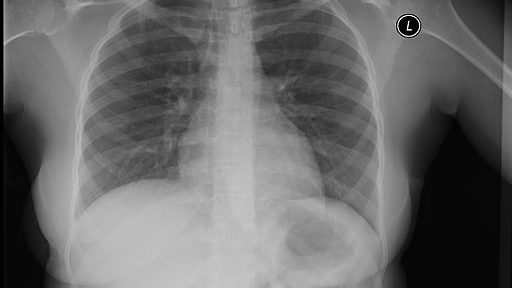Last updated on December 6th, 2019 at 10:20 am

The drug that is in use for treatment for rheumatoid arthritis may help heart attack survivor prevent a future attack, according to a recent study.
The research work conducted at Vanderbilt University and published in the journal JCI Insight concluded that “Cadherin-11 blockade” a drug prescribed for Rheumatoid arthritis may help healing the heart after surviving heart attack.
Interestingly, another research reveals that in obese person the heart disease medication becomes less effective. The present research can also be a breakthrough in heart attack treatment.
But, how this research was conducted? what made scientists conclude this? Let’s try to find out in this article.
Basis of research
Before we start, one should aware that heart attack is different from cardiac arrest. The present research is about heart attack survivor.
Researchers already knew that in inflammatory and fibrotic diseases like rheumatoid arthritis, pulmonary fibrosis, and aortic valve calcification, a specialized cell-cell adhesion protein has important role in inflammation and fibrosis. This protein is termed as cadherin-11 (CDH11).
When people survive heart attacks (technically called myocardial infarction), the heart also responds with inflammation and scarring. “Some amount of inflammation is necessary in myocardial infarction, but becomes excessive and causes adverse side effects,” said senior author W. David Merryman, Walters Family Chair in the School of Engineering and a Professor of Biomedical Engineering, Pharmacology, Medicine, and Pediatrics, at Vanderbilt.
But, the role of cadherin-11 (CDH11) has never been studied in myocardial infarction.
Research methodology
The research was conducted in a mouse model. Researchers induced Myocardial infarction (heart attack) in the mice by a technique known as permanent coronary artery ligation. And they were also given two different treatment for it.
- Wild-type mice receiving bone marrow transplants from Cdh11-deficient animals, and
- Wild-type mice treated with a functional blocking antibody against CDH11 (SYN0012).
SYN0012 blocks the cadherin-11 protein, a cadherin-11 blockade drug which is used for the treatment of rheumatoid arthritis.
Researchers then conducted a number of investigations on both kinds of treated mice, like Echocardiography, Cell studies, Flow cytometry.
Result
Animals given SYN0012 had improved cardiac function, as measured by echocardiogram, reduced tissue remodeling, and altered transcription of inflammatory and proangiogenic genes.
Shortly after a heart attack, immune cells are stimulated to stabilize the heart and clear cellular debris. Once done, signaling results in inflammation and cells called myofibroblasts start remodeling cardiac tissue. By using SYN0012, they could fine-tune the amount of inflammation involved in the remodeling, which allowed the heart more freedom to recover and return to normal.
“Our studies using this antibody noted improvements in every metric,” said Merryman. “Starting with calcific aortic valve disease and now with myocardial infarction, we’ve seen significant improvements from short-term heart function to long-term prevention of progression into heart failure. This antibody is a major step forward for cardiac recovery.”
Conclusion
This work has identified CDH11 as a potential therapeutic target to reduce inflammatory and fibrotic remodeling following Myocaridla Ischemia by selectively targeting a host of active non-CMs responsible for the initiation and progression of cardiac fibrosis and heart failure.
Cadherin-11 blockade reduces inflammation-driven fibrotic remodeling and improves outcomes after myocardial infarction.
Resources:
[zotpress items=”{5956979:H5YNBBBM}” style=”chicago-fullnote-bibliography”]
The author is a physiotherapist who has been practising for the last 17 years. He holds a Bachelor's in Physiotherapy (BPT) from SVNIRTAR (Swami Vivekananda National Institute of Rehabilitation and Research), one of the prestigious physiotherapy schools in India.
Whatever he learns dealing with his patient, he shares it with the world through blogs and e-books. He also owns a YouTube channel, "Sunit Physiotherapist" with over 8 lakh active subscribers. Here, he shares everything he gets to learn serving the patient.





